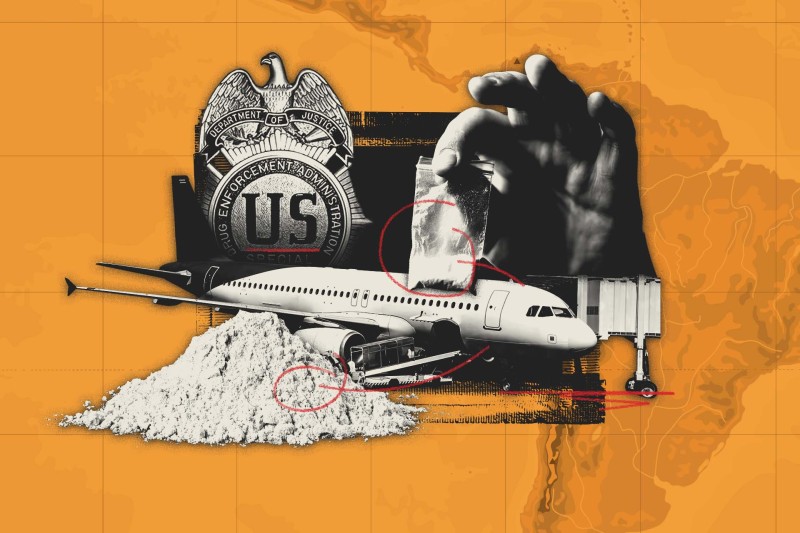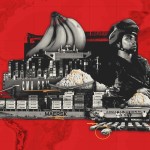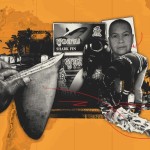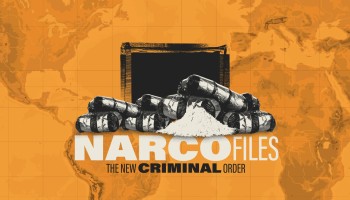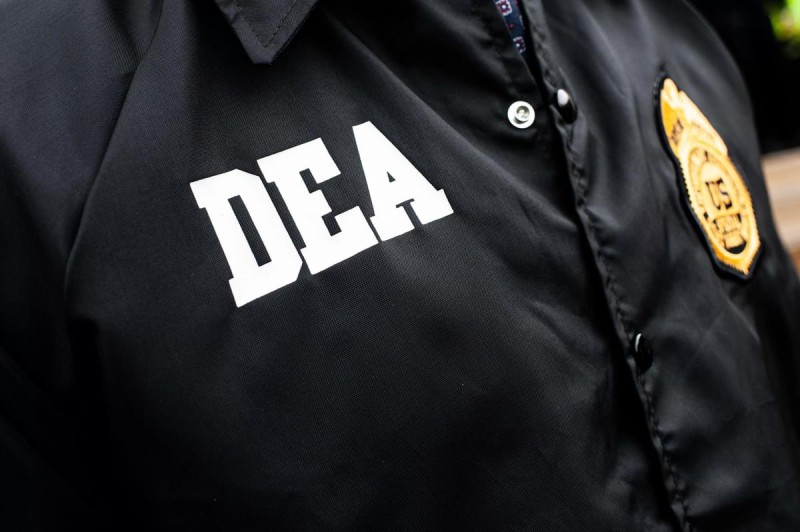A large truck carrying sacks of potatoes pulls into a warehouse in the Colombian city of Cartagena in late October 2019. Once inside, two men unload the real cargo: 700 kilos of cocaine.
They hand the drugs over to a trusted partner who has elected to transport the drugs to Spain. He does as promised — but on a commercial Iberia flight under the watch of the U.S. Drug Enforcement Administration (DEA).
This type of operation is known as an “international controlled delivery,” or ICD.
It is a secretive practice that foreign law enforcement agencies such as the DEA have been using in partnership with Colombian authorities to infiltrate criminal gangs in order to gain intelligence on their movements, and eventually make arrests. (Spanish police arrested three people who arrived to pick up the delivery in a parking lot outside of Madrid.)
The DEA seldom details its use of “ICDs” in its press releases or other public reports. Reporters could find no published record of statistics on the practice, and the agency did not respond to questions about the program.
The program is subject to judicial review in Colombia, and two former DEA agents told OCCRP that the agency adheres to strict protocols in carrying out the deliveries. Several of the ICD cases reviewed by reporters resulted in indictments, extradition, and conviction, suggesting the tactic can be effective. But transparency advocates said that the program’s secrecy raises questions about oversight.
Tom Devine, legal director for the Government Accountability Project, a Washington D.C. based advocacy group, said the DEA should implement an outside review process over the use of international controlled deliveries to ensure they are safeguarded against abuses.
“There won't be accountability unless one is established,” said Devine, whose group represents whistleblowers, including DEA agents who have been punished for reporting corruption.
The Cartagena case is one of at least 92 individual requests made to Colombia’s judiciary — which must authorize parts of the operations — to approve controlled drug deliveries between 2017 and 2022. Reporters were able to gain rare insight into the inner workings and the scope of the program in the country, thanks to a leak of millions of emails from Colombia’s prosecutor’s office.
The vast majority were filed by U.S. law enforcement agencies, chiefly the DEA, but there were also requests by authorities in Spain, France, the Netherlands, England, and Australia.
In total, Colombia’s judiciary greenlit the use of up to $38.7 million and 44 tons of cocaine for such operations over the five-year period. Reporters found proof that at least two-thirds of the requests were approved, and discovered no documentation of any rejections. Colombian prosecutors declined to provide statistics or any other information about the program.
About the Project
Luis Moreno, a retired State Department official who headed the narcotics control office in Bogotá, told OCCRP that details of ICD operations were not made public in court documents or press releases because that could put the lives of agents or informants at risk.
“[Due to] the very nature of the operation, because you are playing with people's lives really, secrecy is of utmost importance,” Moreno said. But he acknowledged that a lack of transparency can create opportunities for abuse: “That very secrecy which you need to conduct the operation is also conducive to people doing bad things.”
Since 2000, Colombia has received some $13 billion in U.S. aid as part of the half-century “War on Drugs.” But the efforts have dramatically failed to stem the flow of narcotics, with coca cultivation at record levels. Colombia remains the world’s top producer, much of it going to consumption in the U.S.
How It Works
The leaked documents give a rare glimpse into how ICDs work in practice.
First, the DEA, or another foreign partner, informs Colombian prosecutors in a formal letter about their knowledge of a transnational crime group. They then request the help of a Colombian undercover agent to pose as a trafficker, as well as permission to obtain and transport the group’s drugs with the goal of gaining information about its structure and securing evidence against its members. They ask for specific quantities of drugs and money and the operation is often set for a period of one year.
Prosecutors put the request before a special Colombian judge, who accompanies the case and can authorize wiretaps and entry into homes and offices.
Once the drugs are secured — frequently with the help of an informant — the contraband can then be transported abroad, often by the DEA or to its agents in foreign countries, with the aim of investigating and arresting those on the receiving end of the transaction.
Using nearly identical language, many of the requests in the leaked documents sought authorization to use the same broad array of funds and substances: 200 kilograms of cocaine, five kilograms of heroin, 20 kilograms of methamphetamines, 20 kilograms of synthetic drugs, and $2 million of cash of illicit origin.
In a February 2022 request, the U.S. Justice Department’s representative in Bogotá sought permission for an operation where the “seized substances” could be used as evidence for an investigation, carried out in New Jersey, into an organization that was allegedly trafficking drugs from Colombia to the U.S.
The operation would see undercover agents secure the trust of the organization and agree to transport its drugs from Colombia to the U.S., the Dominican Republic, or Mexico — whichever location “has been established by the organization for the delivery,” the request explains.
After undergoing lab testing for authenticity, the drugs would be flown on a commercial aircraft or a plane controlled by the U.S. embassy, it said. Documents reviewed by reporters did not make the outcome of the operation clear.
Some requests were lighter on details. One appeal from the U.S. Department of Homeland Security said undercover agents would “coordinate the logistics for the transportation of the narcotic substance via (cargo or passenger flights), land (using buses, cars or cargo trucks) or river (with boats, speedboats or yachts) to Paraguay, Bolivia, Brazil, Honduras, Dominican Republic, Bahamas, Spain, Mexico, United States."
That was so broad it potentially covered almost anywhere in the Americas and nearly any form of transport.
Operational Irregularities
Other documents contained more specifics — and records of what a former DEA agent described as “irregularities” in the operations. In November 2020, for example, the U.S. Department of Homeland Security in San Diego requested permission from the Colombian prosecutors’ office to transport a batch of cocaine to Toronto.
In preparation, two Colombian agents kept nearly 100 kilos of cocaine — about the weight of a refrigerator — stored in their unsecured office.
This incident appears in a document addressed to the director of Colombian prosecutors’ specialized anti-narcotics office, in which the two Colombian agents are interrogated by colleagues over email about how the drugs ended up stored improperly.
These two agents, according to the document, were involved in at least 37 controlled deliveries operations linked to this case, which eventually led to the seizure of 1.5 tons of cocaine, hundreds of thousands of dollars in cash, and nine arrests abroad.
But in the April 2021 document to the anti-narcotics director, the pair was shown being grilled about rule violations. They were later criminally convicted with falsifying documents, though they are trying to challenge the ruling.
The former DEA agent, who spoke to OCCRP on condition of anonymity, highlighted an irregularity in paperwork filed for a different operation in which an agent received funds from a criminal group that were intended to finance drug trafficking activities. The file includes a handwritten receipt from the Colombian agent to the DEA documenting the cash received.
“Bag containing undetermined amount of bulk currency,” reads the note on a receipt form, adding that it includes bills in Colombian pesos and European euros that would later need to be added up.
The former DEA agent noted that the document was missing the agent’s signature.
“That right there is a red flag,” he said, explaining that delivery of money or drugs requires two signatures — an agent and a witness — to guard against theft and corruption. (The DEA declined to answer questions about the program from reporters.)
A second, recently retired DEA agent who has worked on ICDs stressed that the agency does a “ton of internal record keeping” of the practice.
The work of ICDs is rarely made public, he added, because most cases involve a “cooperating individual” — that is, an informant who is part of the organization and facing charges.
The recently retired agent said that these risks mean the process requires strict confidentiality, especially as the informant may continue to work with the DEA.
“You're putting all these different steps in to insulate the informant,” the retired agent said. “That's why it almost never comes out that, oh, my gosh, this was completely orchestrated by the government, and we had a cooperating informant.”
‘Sensitive Investigation Units’ Under Scrutiny
Other DEA-run activities have come under scrutiny in the past. In February, the head of Colombia’s asset forfeiture unit, a key institution in its anti-narcotics efforts, was arrested on corruption charges.
Program Oversight
The risks of other secretive programs involving major transfers of money and contraband can be high — as demonstrated in a separate case by the conviction of DEA agent José Irizarry, who late last year began serving a 12-year prison sentence for skimming millions of dollars from controlled money laundering operations. (While similar in some respects to ICDs, the operations were not directly related.)
In a December 2022 interview with the Associated Press, Irizarry said that the indictment “paints a picture of me, the corrupt agent that did this entire scheme. But it doesn’t talk about the rest of DEA. I wasn’t the mastermind.”
In Colombia, the ICD practice is governed by a 2004 law that requires the operations to be accompanied by a specialized judge and tracks the operation’s progress. The leaked records show that Colombian agents are required to keep chain-of-custody documentation of the illicit substances used in ICDs.
Undercover agents are also required to be accompanied by a “control agent,” who oversees the operation, according to authorization documents found in the leak.
The DEA did not respond to requests for comment about what oversight is exercised over ICDs in the U.S. Reporters could find no mention of external oversight on the DEA’s website, its annual report, press releases, or in indictments that resulted from the use of ICDs or in congressional testimony.
The Justice Department, which the DEA falls under, is audited by an independent entity known as the Office of the Inspector General.
The inspector general’s annual reports do not mention ICDs. But the office has previously raised concerns about the program of controlled money laundering operations Irizarry had taken part in, which involved undercover financial transactions used to dismantle drug trafficking and money laundering organizations.
An August 2023 report by the inspector general, for instance, found the DEA had failed to fully implement controls over those money laundering operations. A 2020 audit referenced in that report had found that the DEA had downplayed “the risk of allowing illicit funds to ‘walk’ and filter through legitimate and illegal financial channels.”
A 2021 audit by the inspector general also raised concern about the agency’s lack of monitoring over its foreign operations writ large, citing “insufficient” oversight for the high-risk environment in which these units operate.”
The inspector general’s office declined to comment beyond pointing to its reports.
The recently retired DEA agent — who reviewed several of the leaked records to help confirm their authenticity — said that ICDs were effective due to the “rigid protocols” that had to be followed in their use. But he added: “While there is generally strict adherence to these protocols, and internal oversight guides agents’ actions, any time large amounts of drugs and money are involved in the same operation, the possibility of corruption exists.”
“Agencies could benefit from independent post-ICD oversight to ensure transparency,” he said.
Research was provided by OCCRP ID. Antonio Baquero (OCCRP), Daniela Castro (OCCRP), Brian Fitzpatrick (OCCRP), and Aubrey Belford (OCCRP) contributed reporting.
